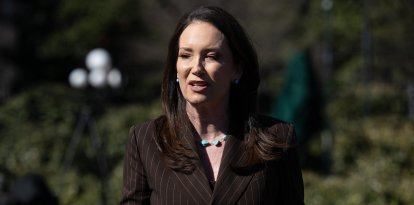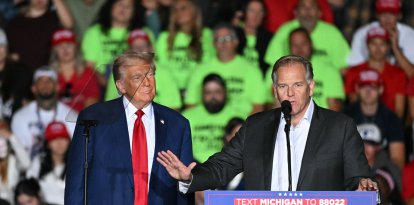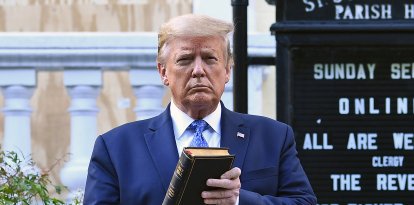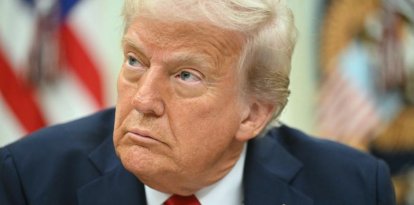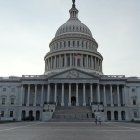The impending government shutdown divides the Republican Party in Congress
In a scenario much like 2023, Senate leadership is impatient with House Speaker Mike Johnson, who has yet to reach consensus with his colleagues on a proposal.
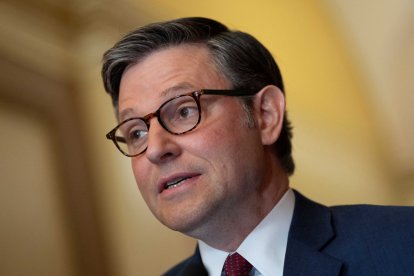
Congress has until Sept. 30 to avert a government shutdown/ Chris Kleponis
The Congress is working against the clock to avoid a government shutdown. If lawmakers fail to advance a proposal by next September 30, it will result in the first shutdown since 2019, when Donald Trump failed to reach an agreement with Democrats on border wall funding. Five years later, the situation is different and the Republican Party has failed to reach an agreement behind closed doors.
Mike Johnson, speaker of the House of Representatives, is struggling to come up with legislation that will satisfy all congressional Republicans, putting him in a position much like Kevin McCarthy was in 2023. So far, his attempts to draft something that all of the party can live with have been unsatisfactory.
This week Johnson is not giving up and expects the lower chamber this week to pass what is known as a Continuing Resolution (CR), an interim funding bill and one that is often used as a way to buy a little more time so lawmakers can craft a final funding proposal. .
"Congress has an immediate obligation to do two things: responsibly fund the federal government and ensure the security of our elections. Because we owe it to our constituents, we will move forward on Wednesday with a vote on the 6-month CR with the SAVE Act attached," the Speaker said on his X account.
">Congress has an immediate obligation to do two things: responsibly fund the federal government, and ensure the security of our elections.
— Speaker Mike Johnson (@SpeakerJohnson) September 17, 2024
Because we owe this to our constituents, we will move forward on Wednesday with a vote on the 6-month CR with the SAVE Act attached.
I urge…
The SAVE Act includes the American Voter Eligibility Protection Act. Supported by Republicans, it would require proof of citizenship for voter registration. This part of the legislation included within the CR makes its progress in both the House and Senate rather complicated.
"I urge all of my colleagues to do what the vast majority of the people of this country demand and deserve: prevent non-U.S. citizens from voting in U.S. elections," Johnson added.
In the Senate, the Republican leadership expects Johnson to keep his word and pass the legislation in the next few days. If not, they are ready to take action and move forward with their own CR to fund the government until December.
A government shutdown before the election would be "politically stupid"
Mitch McConnell, still Republican minority leader in the Senate, spoke to reporters and spoke with finality on the possibility of a shutdown less than 60 days before the presidential election.
"One thing you cannot have is a government shutdown. It would be politically beyond stupid for us to do that right before the election, because certainly we’d get the blame," the Republican noted.
"One of my favorite old sayings is there’s no education in the second kick of a mule. We’ve been here before. I’m for whatever avoids a government shutdown, and that’ll ultimately end up, obviously, being a discussion between the [Senate] Democratic leader and the Speaker of the House," McConnell added.
">.@LeaderMcConnell: "The one you cannot have is a government shutdown. It would be politically beyond stupid for us to do that right before the election because certainly we'd get the blame." pic.twitter.com/Al0yD8ztLM
— CSPAN (@cspan) September 17, 2024
McConnell's view is shared by many of his colleagues in the upper chamber. "I don’t like a shutdown, period. Whether close to an election or not, it wastes money. It costs taxpayers more money. They don’t save, they lose. If we’re protecting taxpayer resources, which is supposedly part of our job, we have to find a way to not have a shutdown," Sen. James Lankford (R-OK) stated.
"It’s becoming a mess. Especially our military — they’re suffering. Even if you do a [continuing resolution], you know they don’t get the money they’d normally get. This whole thing’s a debacle," added Sen. Tommy Tubervielle (R-AL) for his part.
What is the government shutdown and what are its consequences?
The United States decides how to spend public money year after year when Congress passes what is called the Appropriations Bill. The deadline lawmakers have to agree is October 1. If there is no approved text by then, the Federal Government shuts down.
The logic comes from the National Constitution, specifically Article 1, Section 9: "No money shall be drawn from the treasury, but in consequence of appropriations made by law; and a regular statement and account of the receipts and expenditures of all public money shall be published from time to time."
Once closure is reached, certain agencies immediately cease to function. They may include all, just some or one in particular. Their employees cannot work and their pay is withheld until lawmakers on Capitol Hill agree.
The United States was completely unfamiliar with this scenario until well into the 20th century, when the first government shutdown took place in 1980. Jimmy Carter was the first president to be in charge during this situation, which on that occasion lasted just over 24 hours. The shutdown was repeated in 1982 (twice), 1983, 1984 (twice), 1986, 1987, 1990, 1995 (twice), 2013, 2018 and 2019.
Counting the 1980 one, on the first five occasions, Democrats controlled the House of Representatives, which is usually in charge of pushing through the Appropriations Act. Ronald Reagan was the president when the government shutdown eight times between 1981 and 1989.
The last one, which coincidentally was the longest, was in 2019, when it took 35 days before everything returned to normal operation. It is estimated that 800,000 public employees did not receive their money during that period of time.
One of the most remembered scenes of that shutdown occurred when Donald Trump, then president, had to entertain the Clemson University soccer team, who had recently won the College Football National Championship. However, since the White House employees were unable to work, including the kitchen, the president pulled out his wallet and bought food from McDonald's, Wendy's and Burger King. "If it's American, I like it. Everything is American. No matter what we did, there's nothing you can have that's better than that, right?" the Republican noted at the time.
RECOMMENDATION
